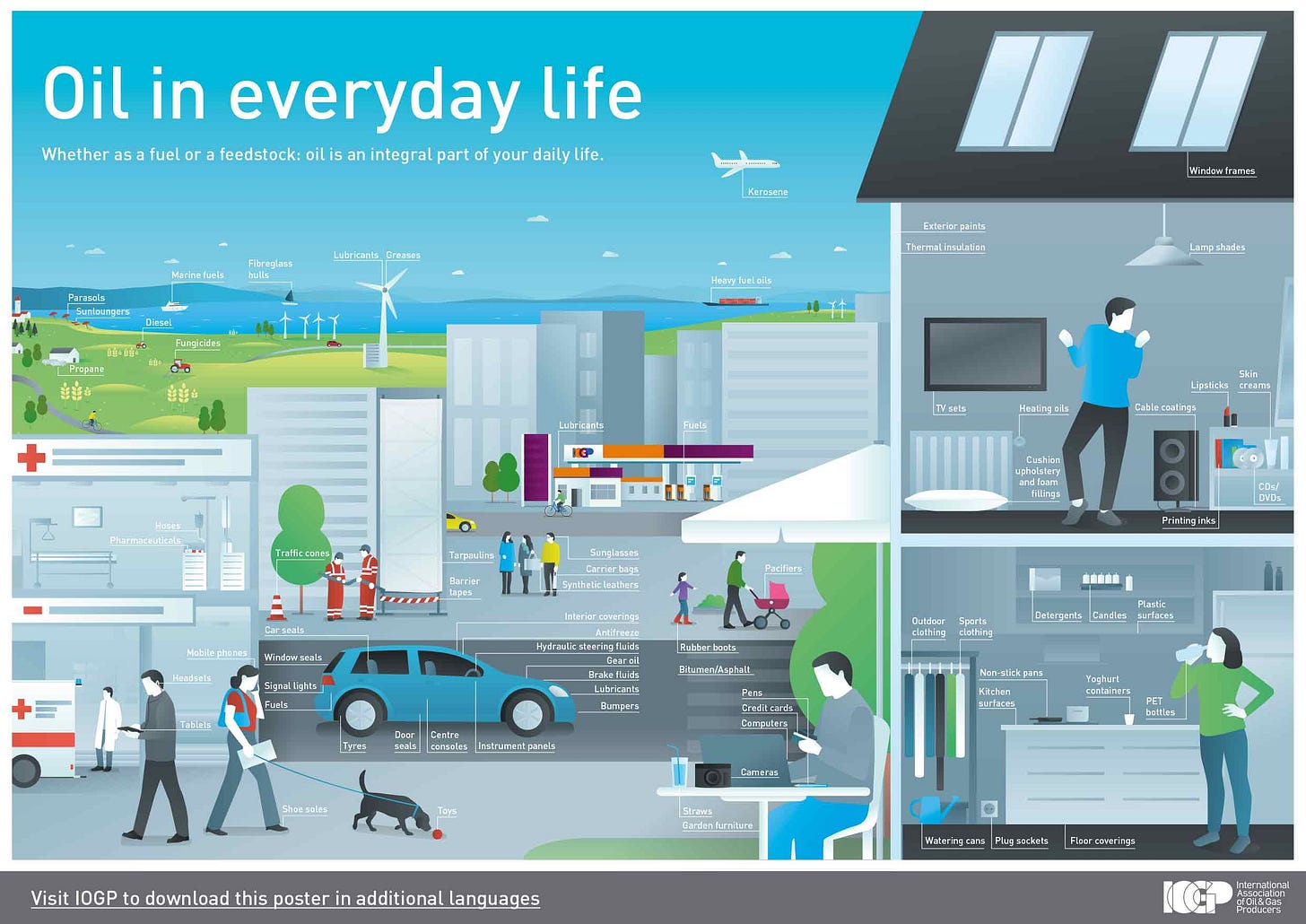It’s frightening to think that you might not know something, but more frightening to think that, by and large, the world is run by people who have faith that they know exactly what’s going on.
– Amos Tversky
When I mention “oil and gas”, what comes to mind?
My guess is you started thinking about the gas in your car, climate change, greedy Big Oil, or maybe even evil.
For many, the thought of investing in oil and gas is unpalatable - either on ethical grounds or simply because they don’t understand the space. More often than not, it tends to be the former.
And how can you blame them?
We’ve all seen the sad Netflix documentaries highlighting the dangerous biodiversity loss we’re experiencing in our coastal waters; the plastics pollution filling up our rivers and oceans; and the toxic emissions impacting our health and the future of the planet. Environmental damage that in one way or another is traced back to our consumption of oil and gas.
As a result, over the past several decades, environmentalists have come to the natural conclusion that we need to “Just Stop Oil” and divest from all oil and gas investments. By weaning ourselves off of oil, we supposedly will be able to stop the carbon emissions, reduce the environmental damage, and save Earth for future generations.
This ESG movement has become so powerful and ubiquitous that it has effectively permeated all levels of government, academia, and the corporate and investment worlds. Trillions of dollars in capital are being allocated towards green technology and supposedly sustainable investments to transition away from fossil fuels - posing an existential threat to the oil and gas industry.
This is very concerning because the underlying reality is…
Oil and gas underpins the very fabric of our modern life.
To list out all the ways in which oil and gas enables modern life would be beyond the scope of this article but here are 5 critically important uses of oil and gas for which we currently have no easy substitutes:
Oil in the form of diesel and liquid fuels needed for long-haul transportation (ships, jets, trains, and trucks).
Natural gas in the synthesis of ammonia and nitrogenous fertilizers for food production.
Natural gas in heating and electricity generation.
Diesel to power virtually all heavy duty equipment and machinery used in manufacturing, mining, and processing industries.
Oil and natural gas liquids in the production of all forms of plastics.
It’s almost frightening to imagine what life would be like if we did not have oil and gas. Nearly everything that we touch, use, and depend on has either been produced from a derivative of oil and gas or has been indirectly enabled by it.
Here’s a mind-blowing statistic: without ammonia and nitrogenous fertilizers, it would be virtually impossible for us to grow enough food to feed ~50% of the population.
In other words, HALF of the world’s ~8 billion people would not even be alive without oil and gas. Let that sink in.
Another important reality that the ESG movement seems to ignore is that we need oil and gas to produce the solar panels, wind turbines, and EV batteries we so rely on for the green transition. A LOT more oil and gas.
Vaclav Smil, perhaps the foremost authority on all matters related to energy and environmental change, stated the following in his latest book “How the World Really Works”:
“Increasing dependence on fossil fuels is the most important factor in explaining the advances of modern civilization.”
Our enormous consumption of oil and gas over the past century has lifted billions out of poverty and indirectly enabled all the technological innovations that we now enjoy and take for granted in life. By stopping investment in oil and gas now, not only are we turning our backs on the lives of billions of people around the world, but we are also effectively ensuring that our ambitious climate goals will never be met.
As an investor in public markets, I constantly look for large market mispricings that arise from factors such as excessive investor pessimism, structural market inefficiencies, and broad neglect of a certain company or industry as they often pave the way for attractive future investment returns.
Oil and gas checks all these boxes.





It is crazy to think how without these essense resources how many lives will be lost and the conveniences we so much indulge still, although regrettably, needed...and the big conundrum here is that the ESG movements still depend on the usage of oil and gas in some way or process to make those environmental friendly consumer products. Thank you for your insight, it was a nice read!
I’ve never thought about oil & gas from this perspective. Thank you for sharing.